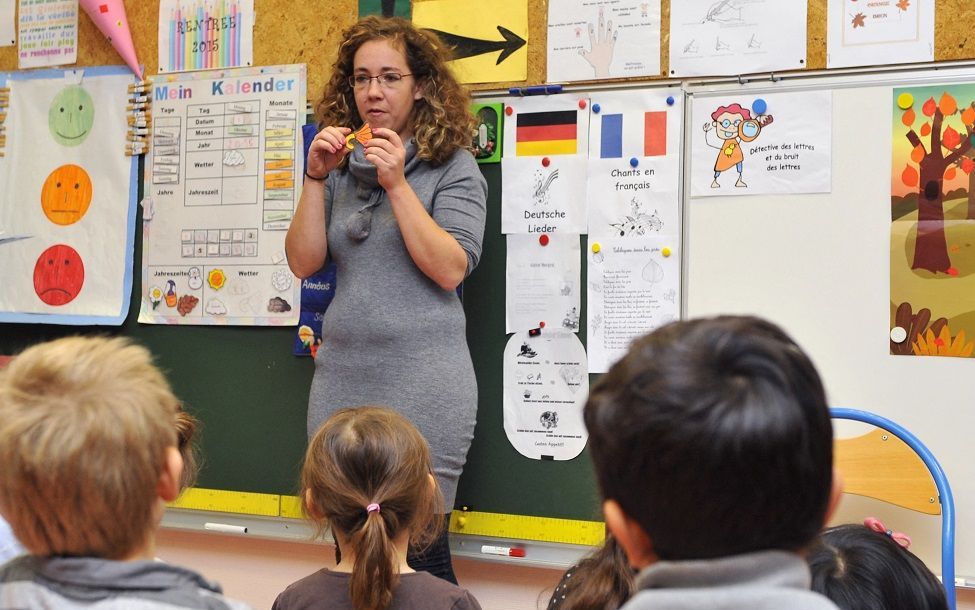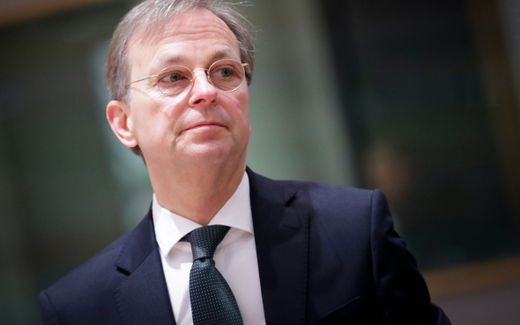“Christian school is highly appreciated in German city today”
26-02-2022
Central Europe
Nicolai Franz, PRO

Photo AFP, Jean-Christophe Verhaegen
Central Europe
Thirty years ago, a ground-breaking court decision gave green light for the founding of almost 150 Christian schools. Association leader Wolfgang Stock explains in an interview what has happened since then – and why the ruling is more relevant today than ever.
PRO: February 1992 is crucial for the Association of Evangelical Confessional Schools. Why?
Wolfgang Stock: “At that time, an important judgment was made. That was confirmed recently. In 1992, parents who wanted to start a Christian denominational school in Hamburg, which had not been approved for years, were proven right. They went to the Higher Administrative Court in Hamburg, which ruled that they were correct. Even so, the Senate still wouldn’t approve the start-up of the school. Instead, it dragged the parents before the Federal Administrative Court. There the parents were proven right again. The verdict was the starting signal for Christians who wanted to find a denominational school. Right now, there are 150 of them in our association.”
What is the difference between a church-sponsored school and a Christian denominational school?
“The schools in our association were all founded by parents, that is, Evangelical Christians.”
And not from the official church.
“Exactly. Church Evangelical schools are usually very closely linked to the regional churches.”

Why did Hamburg have such a big problem with the foundation of a Christian denominational school at the time?
“That’s an exciting question. Article 7 of the Constitution states that parents have the right to freely set up a school. This is somewhat restricted in paragraph 5, namely that a primary school may only be founded as a philosophical, confessional institute or as a school with special pedagogical interests. But it is very evident that parents are allowed to establish their own school. In Hamburg, it was said: We already have an Evangelical school connected to the regional Evangelical church, and the two big Christian churches (Protestant Church in Germany, EKD, and Roman Catholic Church, ed.) should found Christian schools.”
Was there perhaps concern about not knowing what is taught in a completely free Christian school?
“Article 7 of the Constitution also states: The entire school system is under state supervision. Perhaps those responsible still acted according to the motto: “What the farmer doesn’t know, he doesn’t eat.” In a detailed and well-thought-out judgment, the court found that the Constitution meant otherwise – and that Hamburg was wrong. Even with the somewhat limited founding of elementary schools, the Constitution does not state that only official churches are allowed to do so.”
What happened after the verdict?
“The school senator at the time refused to sign the charter. The school association almost went to the next court. But that didn’t happen for a curious reason: the school senator went on holiday, and instead, her vacation representative signed the certificate. What must be, will be.”
Are there any requirements concerning the confession of a Christian school?
“And how! That’s why the judgment is so long. Accordingly, the confession must be a comprehensive and binding worldview.
In all the confessional schools in our association founded after this verdict, this is the basis of the faith of the Evangelical Alliance. The court explicitly said that this basis of confession was sufficient. The school associations must ensure that the commitment permeates the entire school day. Not just in the religious lessons or in morning prayer, but in every subject if it somehow fits. One may also promote this confession in denominational schools but not overwhelm the students. You must be able to make different choices.”
Are there also Islamic denominational schools?
"Because of the high demands, Islamic initiatives have often failed, although not always. In Islam, it is usually the local imam who determines the binding rules. Something generally binding, such as a creed of the church, is the exception rather than the rule. In the meantime, however, Muslim parents have found ways to present corresponding confessions, which have also been accepted. Freedom of religion does not only apply to Christians but everyone.”
Who must share the confession of a Christian school?
“The students only have to a limited extent, since some are not old enough. The members of the association and all employees –from the teacher to the caretaker and the parents– must be committed to the confession. The court formulated an opening clause for the parents: It is enough to get to know the confession with their children. However, these parents must not form a majority that would restrict the confessional character. According to the verdict, parents bothered by a prayer at the beginning of the parents’ evening would not belong at such a school.”
What are the limits of such a commitment?
“The general requirement of tolerance applies, of course – and the so-called “prohibition of overpowering”, as laid down in the “Beutelsbach Consensus”, for example. According to this, teachers, board members and staff can exemplify the confession and promote it.”
Association of Evangelical Confessional Schools
According to the Association of Evangelical Confessional Schools, it represents 146 Christian confessional schools and 44 Christian day-care centres. These include more than 31,000 children and young people and around 3,000 employees at 121 locations throughout Germany. Sixty-four parents’ initiatives are responsible for the schools and day-care centres. According to the VEBS, it is a “spiritual homeland, platform and service provider (advice, further training, employee search...), organizer of events and lobbyist for free confessional schools and day-care centres - and defender in the event of unfounded attacks”. Chairman is Peter Dück; Secretary-General is the former journalist Wolfgang Stock.
Despite the verdict, there are always politicians who want to restrict the rights of Christian denominational schools. The most common accusation is that biology classes teach creationism instead of evolution. What do you think about that?
“Most of those who voice this criticism are unfamiliar with the state curriculum. In practically all federal states, state schools are required to teach the theory of evolution and present so-called non-scientific explanatory models to the students so that they can deal with both systems.”
Even in biology class?
“Yes. Today’s curricula are no longer about the subject matter but about competencies. It means, for example, I can deal with different explanations and form an opinion on them. That also happens at Christian schools. These are “state-approved alternative schools”. It means that attending our schools fulfils the requirements of compulsory schooling in Germany, and that our certificates are just as valid as certificates from a state school. At our schools, high school graduates must take part in the national final exam like everyone else. So, it goes without saying that our students learn everything that one learns at a state school. But they also know from a Christian biology teacher that she has a different view, based on her faith and that she might be a little critical of the theory of evolution. The students are then asked to form their own opinion.”
It is the 30th anniversary of the verdict. What has changed for Christian denominational schools since then?
“Before the verdict, there were only a handful of small Christian schools in Gießen, Frankfurt, Bremen and Reutlingen. They hardly played a role in German society. That has changed a lot after the verdict. In the meantime, 0.5 per cent of all students in Germany attend a Christian denominational school of our type – that’s not only a few. At anniversary events, in which I am often allowed to participate as Secretary-General, it is now customary for the mayor to say a positive word of welcome or even the ceremonial speech – regardless of party affiliation. Christian denominational schools are highly appreciated and entirely accepted in the city.”
One hundred and fifty schools belong to your association. Is the school market saturated, or do you still see growth-potential?
“We have many requests from people who want to start a denominational school, and we conduct several school planting seminars each year. But there is a dramatic shortage of teachers in Germany. We also notice that, especially since our teachers also have to be believers. Therefore, unfortunately, we have long waiting lists for the students.”
Do teachers in Christian schools get the same salary as government schools?
“Partly yes. In North Rhine-Westphalia or Baden-Württemberg, you can even become or remain a civil servant, but unfortunately not in the other states. The refinancing is different in each federal state and lower than at state schools. Therefore, as a rule, we cannot pay our employees as much as state schools do. However, our teachers want to live their faith in their profession, so they choose us anyway.”
Can you imagine that this verdict from 1992 would still be passed in this form today?
“Two years ago, the Federal Administrative Court took up the verdict again. This time it was related to the case of religious education in Baden-Württemberg. The judges clearly stated that “religious instruction” in a state church should not be compulsory in free schools. In the judgment, they expressly repeated the arguments of 1992. The highest German court for these questions has again strengthened the right to found a Christian denominational school.”
Thank you for the interview!
This article was published previously on the website of the German Christian media magazine PRO, on 18 February 2022
Related Articles





